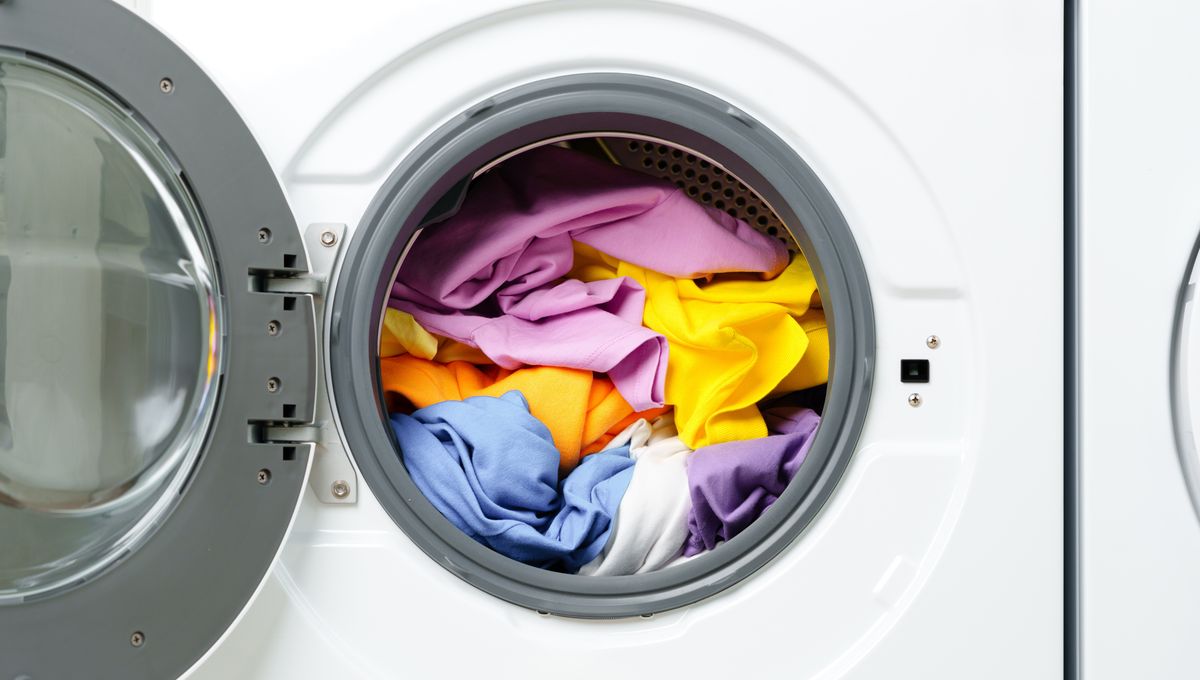
Think you’re a pro at doing your laundry? It could be time to think again. Turns out, washing at cooler temperatures may be the way to go – for the benefit of the planet, your clothes, and your bank balance.
Once upon a time, warmer may have been better, but washing machines have changed, as have detergents, meaning you no longer have to use hot water to get your clothes clean (though there are some exceptions to the rule, as we’ll see later).
“By design, modern washers are well equipped to handle cold water,” GE Appliances explains. “Not only are modern washers designed for cold water, but many detergents have enzymes that can start to work in temperatures as low as 60°F [15.6°C], and cold-water detergent also enhances results.”
If you’re worried about stains, cold water is likely able to handle them: for most items that you can safely put in the washing machine, lower temperatures can remove stains, GE Appliances adds.
Lots of food or beverage stains – chocolate, jam, baby food, and beer, for example – are more easily removed with cold water, according to Arm & Hammer. Cold water is also recommended as best for tackling urine and blood stains.
Some stubborn stains, like oil, grease, or tomato and grass stains, may fare better with warmer water, but for lots of items, particularly those made of delicate fabrics like lace and silk, or dark, colorful fabrics, cold is best.
“Many garment care labels in your clothing specify to wash in cool or cold water. Your clothes can fade, shrink, or bleed when washed in the wrong water temperature. The right temperature can prolong the lifespan of your clothes and save you money,” says the American Cleaning Institute (ACI).
Up to 90 percent of the energy your washer uses goes toward heating the water, so turning the temperature down should help reduce your household energy costs. It also helps to minimize wrinkles in the fabric, so you can spend less time and money on ironing.
There are perks for the planet, too. Turning down the temperature dial reduces your energy consumption and decreases the overall environmental impact of your laundry load.
Hot water can damage the clothing fibers and cause microscopic pieces of synthetic fabrics to shed. As well as potentially ruining your clothes, these microfibers can end up in lakes, oceans, and waterways, wreaking havoc on wildlife and water quality. Washing at colder temperatures can help combat this pollution.
There are, however, some instances when cold isn’t king. Some fabrics, like knits and synthetic fabrics, are easier to wash in warm water. Likewise, heavily soiled clothes will wash better at higher temperatures. If someone in your house is sick, warmer water will do a better job at stopping the spread of germs. And if you live in a colder climate, where tap water reaches 4.4°C (40°F) or lower, laundry detergents may not be effective at lower temperatures.
If in doubt, always read the care label.
Source Link: Why You’ve Probably Been Washing Your Clothes Wrong All Along